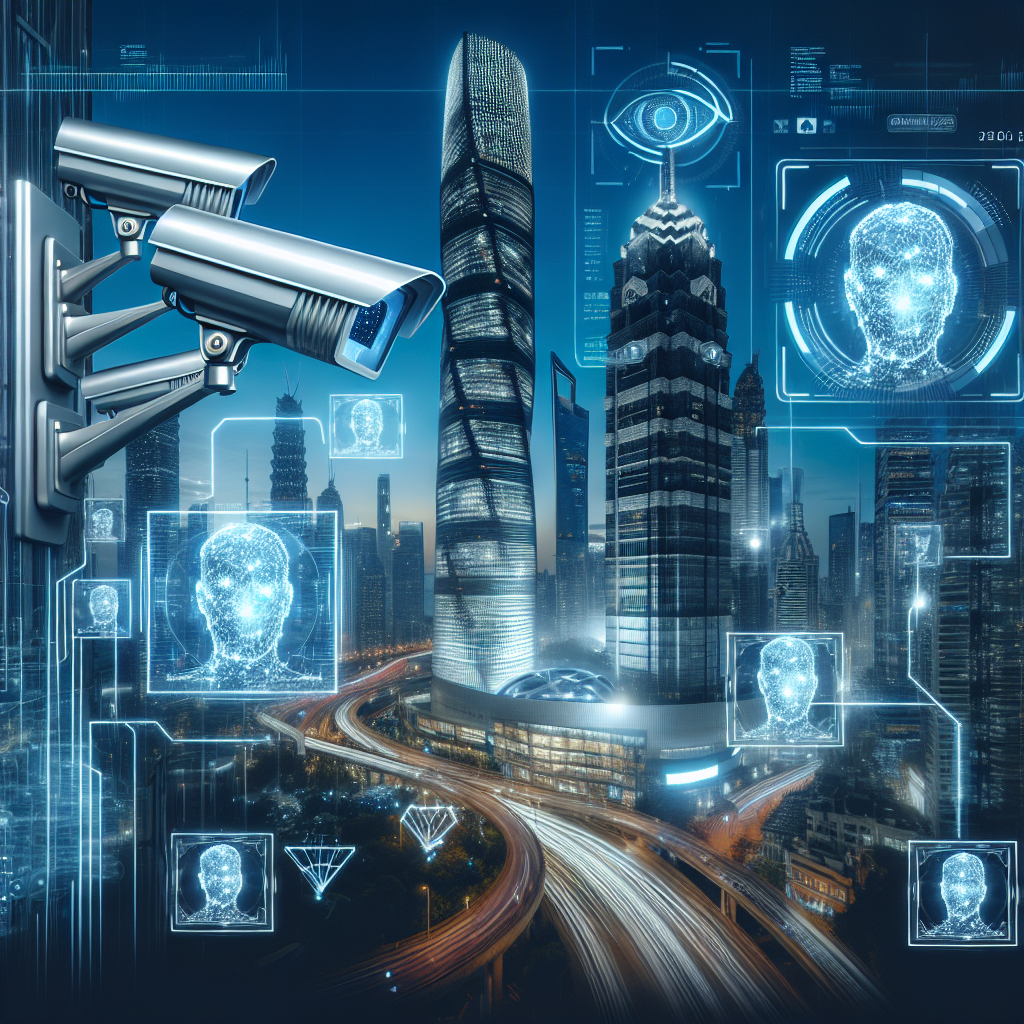With advancements in artificial intelligence (AI) technology, the future of video surveillance is undergoing a significant transformation. AI-powered surveillance systems are revolutionizing security by providing more accurate and efficient monitoring and response capabilities than ever before. This article will explore how AI technology is reshaping the video surveillance industry and discuss the benefits it offers for enhancing security measures.
One of the key features of AI-powered surveillance systems is their ability to analyze vast amounts of video data in real-time. This allows them to detect suspicious activities, such as trespassing, theft, or vandalism, and alert security personnel immediately. AI algorithms can identify patterns and anomalies in video footage that may be missed by human operators, making it easier to identify potential threats and respond quickly to prevent security breaches.
Another important aspect of AI technology in video surveillance is its ability to automate certain tasks, such as tracking and monitoring individuals or vehicles. AI-powered cameras can recognize faces, license plates, and other objects of interest, and track them as they move around a monitored area. This can help security personnel keep track of suspicious individuals or vehicles and provide valuable evidence in case of an incident.
In addition to real-time monitoring and tracking capabilities, AI-powered surveillance systems can also analyze historical video data to generate insights and trends. By studying patterns of behavior and incidents over time, AI algorithms can help security professionals identify potential security risks and make informed decisions about how to improve security measures. This data-driven approach can lead to more effective security strategies and better protection of assets and personnel.
Furthermore, AI technology is enabling video surveillance systems to integrate with other security technologies, such as access control systems, alarm systems, and biometric identification systems. This allows for a more holistic approach to security, where different systems can work together to provide comprehensive protection against various threats. By connecting different security technologies through AI-powered platforms, organizations can create a more seamless and efficient security infrastructure.
The benefits of AI technology in video surveillance are not limited to commercial settings. Law enforcement agencies and public safety organizations are also adopting AI-powered surveillance systems to improve their ability to prevent and investigate crimes. By using AI algorithms to analyze video footage from public spaces, law enforcement agencies can identify suspects, track their movements, and gather evidence to support criminal investigations. This can help improve public safety and reduce the incidence of crime in communities.
However, the adoption of AI-powered surveillance systems also raises concerns about privacy and data security. As these systems become more advanced and ubiquitous, there is a risk of infringing on individuals’ privacy rights and collecting and storing sensitive personal data without proper consent. Organizations that deploy AI-powered surveillance systems must be vigilant about protecting the privacy and security of the data they collect and adhere to applicable regulations and guidelines.
Despite these challenges, the future of video surveillance looks bright with the integration of AI technology. AI-powered surveillance systems offer a range of benefits for enhancing security measures, including real-time monitoring and tracking capabilities, data-driven insights, and integration with other security technologies. By leveraging the power of AI, organizations can improve their security posture and create safer environments for their employees, customers, and communities.
FAQs:
Q: How does AI technology improve video surveillance?
A: AI technology improves video surveillance by analyzing vast amounts of video data in real-time, detecting suspicious activities, automating tasks such as tracking and monitoring individuals, and analyzing historical video data to generate insights and trends.
Q: What are the benefits of AI-powered surveillance systems?
A: AI-powered surveillance systems offer benefits such as real-time monitoring and tracking capabilities, data-driven insights, and integration with other security technologies to create a more comprehensive security infrastructure.
Q: What are the challenges of adopting AI technology in video surveillance?
A: Challenges of adopting AI technology in video surveillance include concerns about privacy and data security, potential for infringing on individuals’ rights, and the need to comply with regulations and guidelines for collecting and storing data.
Q: How can organizations ensure the privacy and security of data collected by AI-powered surveillance systems?
A: Organizations can ensure the privacy and security of data collected by AI-powered surveillance systems by implementing strong data protection measures, obtaining consent for collecting personal data, and adhering to applicable regulations and guidelines for data collection and storage.
